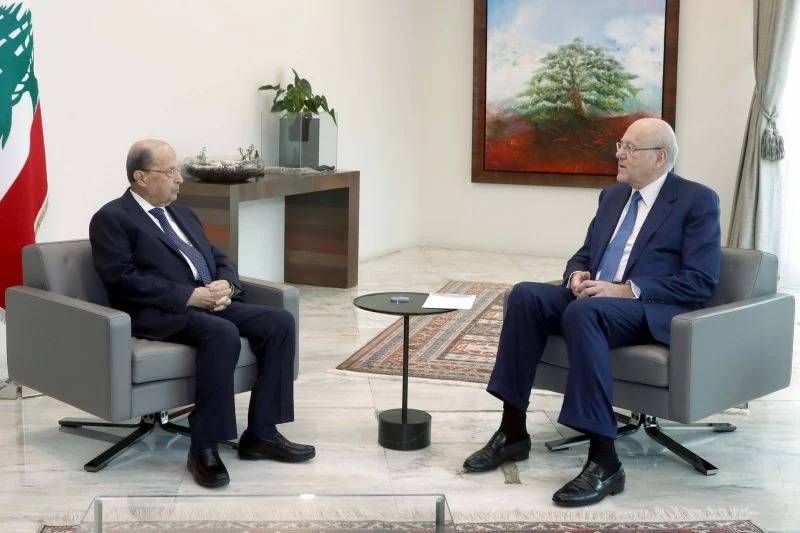
President Michel Aoun and Premier Najib Mikati meet at Baabda Palace on Sept. 10, 2021. (Credit: Dalati and Nohra)
BEIRUT — President Michel Aoun on Tuesday reaffirmed keenness “to maintain Lebanon’s relationship with Arab and worldwide countries, and especially the Gulf countries led by Saudi Arabia,” the state-owned National News Agency reported.
Here’s what we know:
• Aoun also said that the commitment to maintaining good relationships “must be from both sides because it is in Lebanon’s and the Gulf countries’ interest.”
• Aoun’s words came a day after Hezbollah chief Hassan Nasrallah hit back at Gulf countries for accusing his party of being a terrorist organization working within the Lebanese state, saying “the terrorist is the one who keeps hundreds of thousands of Lebanese hostage and threatens Lebanon through them,” in reference to the presence of hundreds of thousands of Lebanese working in Gulf countries that Saudi Arabia and its Gulf allies could expel.
• Shortly after Nasrallah’s comments on Monday, Lebanon’s Prime Minister Najib Mikati issued a statement saying that the Hezbollah chief's words “do not represent the Lebanese government and the majority of the Lebanese and it is not in Lebanon’s interest to abuse any Arab country and Gulf countries in particular.” The prime minister asked the party to “spare Lebanon and the Lebanese the ugly and sectarian political tensions.”
• Comments aired in late October and made by the information minister at the time, George Kurdahi, about the Saudi-Yemeni war ignited a diplomatic crisis between Lebanon and Saudi Arabia, prompting the latter to ban all Lebanese imports and suspend diplomatic relations with Lebanon. Other Gulf countries followed Saudi Arabia’s lead and withdrew their ambassadors from Lebanon. Although Kurdahi resigned from his position on Dec. 3, the diplomatic crisis has yet to be resolved and the import ban remains in place.